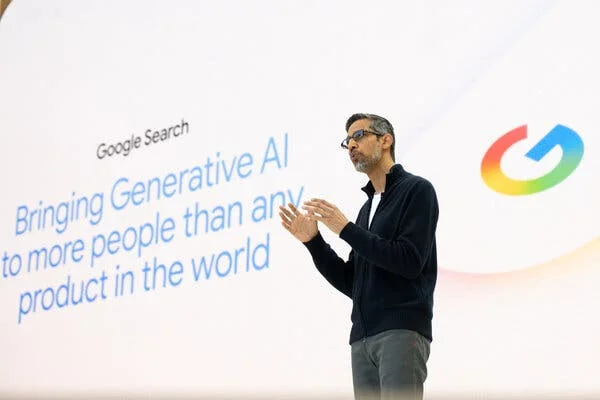
Google Revolutionizes Search with AI Mode, Challenging OpenAI and Redefining Online Queries
Google is fundamentally changing how we search the web, introducing an “AI Mode” designed to compete directly with the likes of OpenAI’s ChatGPT. This new approach, unveiled at Google's annual I/O developer conference, aims to transform the search engine from a mere list of links into a conversational, question-and-answer experience accessible to all US users.
Sundar Pichai, CEO of Google's parent company Alphabet, calls this a “total reimagining of search,” marking a significant shift from traditional keyword-based queries. But what does this actually mean for users and for Google's business model?
The introduction of AI Overviews last year provided brief, AI-generated answers to common topics. These have proven popular, but have also raised concerns about reduced click rates on ads, a critical revenue source for Google.
AI Mode breaks down queries into subtopics, generating additional searches to provide more specific, personalized answers. Think of asking Google to "Find two affordable tickets for this Sunday’s Reds game in the lower level." The AI will search for tickets, analyze options, fill out forms, and present you with suitable choices, initially partnering with services like Ticketmaster and Resy.
Google is also pushing boundaries with Project Mariner, a technology that allows AI agents to take control of browsers and other software to execute tasks like booking trips, shopping, and compiling complex research reports. This agentic approach, while already offered by smaller rivals, could give Google a competitive edge if it can offer a more reliable experience leveraging its vast resources and user data.
Beyond text-based queries, Google is enhancing its visual search capabilities. Imagine pointing your phone at a toolbox and asking if a specific bolt is the right size for your bike frame. This real-time interaction, integrated with the Gemini assistant on Android, is now expanding to iPhones.

Despite these advancements, the rapid integration of AI raises questions about privacy. Google users can grant Gemini access to their historical data for more personalized results, but this also raises concerns over data security and the long-term memories built into these models. Sir Demis Hassabis, head of DeepMind, emphasizes the vision for a universal AI assistant that understands context and takes actions on behalf of users, but where do we draw the line between convenience and privacy?
Microsoft, along with Google, is embracing Anthropic’s Model Context Protocol (MCP) to facilitate communication between AI agents across multiple apps and websites. This standardization is crucial for a seamless user experience in the increasingly complex digital landscape.
Can Google maintain its dominance in the age of AI? The competition is fierce, with OpenAI launching its own search engine and other tech giants like Apple and Microsoft upgrading their virtual assistants. The outcome remains uncertain, but Google's aggressive push into AI-powered search signals a clear determination to remain at the forefront of information discovery.
What do you think about Google's AI-driven search? Will it truly revolutionize how we find information online? Share your thoughts and predictions in the comments below!